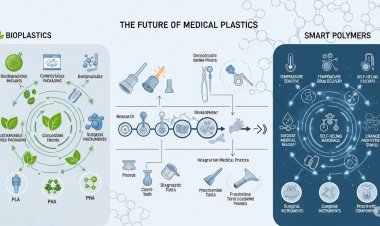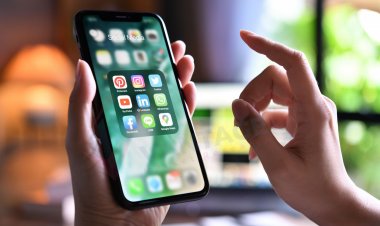Global Telecommunication Market Size to Reach $2652.5 Billion at a CAGR of 5.3% by 2030
Vantage Market Research expects the Telecommunication Market to reach USD 2652.5 Billion by 2030, exhibiting a growth rate (CAGR) of 5.3% from 2023 to 2030.

The Global Telecommunication Market size reached USD 1754.8 Billion in 2022. Vantage Market Research expects the market to reach USD 2652.5 Billion by 2030, exhibiting a growth rate (CAGR) of 5.3% during 2023-2030.
Table of Contents
|
|
|
|
|
|
|
|
|
|
|
|
|
|
|
|
|
|
The Future of Telecommunication: How 5G is Changing the Game
Telecommunication has come a long way since the invention of the telephone by Alexander Graham Bell in 1876. Over the years, we have witnessed significant advancements in Telecommunication technology, from landlines to mobile phones and now to the era of 5G. The fifth generation of wireless technology, or simply 5G, is set to revolutionize the way we communicate, transforming industries and enabling a multitude of potential applications we could only dream of.
Request Sample Report of Telecommunication Market @ https://www.vantagemarketresearch.com/telecommunication-market-2315/request-sample
Top Companies in Global Telecommunication Market
- China Mobile Ltd. (China)
- AT&T (U.S.)
- America Movil (Mexico)
- Telefonica Telstra (Australia)
- Verizon Communications (U.S.)
- Vodaphone Group (UK)
- SoftBank Corp. (Japan)
- Reliance Telecommunication (India)
- Time Warner Cable Inc. (U.S.)
- Airtel (India)
- Nippon Telegraph & Telephone (Japan)
What is 5G, and why is it a game-changer?
5G is the next step in mobile network technology, promising faster download and upload speeds, lower latency, and the ability to connect many more devices simultaneously. It operates on higher radio frequencies, known as millimeter waves, which allows for larger data bandwidths and increased capacity. With 5G, users can expect download speeds of up to 10 gigabits per second, compared to the peak 4G speeds of around 100 megabits per second.
One of the most significant advantages of 5G is its low latency, which is the time it takes for data to travel between its source and destination. Traditional 4G networks typically have a latency of around 50 milliseconds, while 5G networks aim for latencies as low as one millisecond, making real-time applications like self-driving cars and remote surgery possible. It will also enhance the overall user experience, reducing the lag when streaming high-definition videos or playing online games.
Impact on Various Industries
The arrival of 5G is expected to profoundly impact various sectors, including healthcare, transportation, manufacturing, and entertainment.
In healthcare, 5G will enable remote patient monitoring, telemedicine, and virtual reality for medical training. Doctors can monitor a patient's vital signs remotely and offer consultations through high-definition video calls. Surgeons may be able to conduct surgeries from different locations using robotic arms enabled by the low latency of 5G, reducing the need for patients to travel long distances for specialist medical care.
Transportation is another field that will benefit from 5G. With the advent of autonomous vehicles, reliable and high-speed communication is crucial for integrating and coordinating multiple vehicles on the road. 5G will provide the necessary connectivity for vehicle-to-vehicle communication, allowing cars to transmit real-time data and make split-second decisions, leading to safer and more efficient transportation systems.
Manufacturing will also witness a significant transformation with the help of 5G. The low latency and high capacity of 5G will enable real-time monitoring and control of production lines. Smart factories, equipped with sensors and connected machines, can make autonomous decisions, reducing human intervention and optimizing productivity. The ability to connect numerous devices simultaneously will also facilitate the development of the Internet of Things (IoT), where everyday objects can communicate and share data with each other.
Furthermore, the entertainment industry, particularly gaming and streaming, will experience a revolution. With the high speed and low latency of 5G, users will have seamless access to cloud gaming platforms, removing the need for expensive gaming consoles or PCs. Streaming services will provide ultra-high-definition content without buffering or lag, enhancing the viewer's experience.
Buy Now Our Telecommunication Industry Report @ https://www.vantagemarketresearch.com/buy-now/telecommunication-market-2315/0
Challenges and Concerns
Despite its promising potential, the development and deployment of 5G networks come with their fair share of challenges and concerns. Firstly, establishing 5G infrastructure requires a dense network of small-cell base stations, as millimeter waves have a shorter range compared to lower frequency bands. This extensive infrastructure rollout might require governments and Telecommunications companies' significant investments and regulatory efforts.
Security is another important issue that needs to be addressed. The increased connected devices and data exchange may make them vulnerable to cyberattacks. As such, robust security measures must be in place to protect the privacy and integrity of sensitive data.
There are also concerns about the potential health effects of exposure to higher frequencies and electromagnetic fields. However, studies conducted by organizations such as the World Health Organization (WHO) have not found conclusive evidence linking 5G exposure to adverse health effects. Nevertheless, ongoing research and monitoring are necessary.
Conclusion
5G represents a significant leap forward in Telecommunication technology, promising faster speeds, lower latency, and the ability to connect more devices simultaneously. The transformative impact of 5G will be felt in various sectors, revolutionizing industries such as healthcare, transportation, manufacturing, and entertainment. However, successfully implementing 5G networks requires substantial investments, addressing security concerns, and ensuring public health safety.
As we step into the future, 5G opens up endless possibilities for innovation and advancement, heralding a new era of connectivity and changing the way we live and work. The game of Telecommunication is about to enter a new level, and with 5G, we are set for an exciting future.
Read Our Latest Press Release: Print On Demand Market - In-depth Analysis
Contact us
Eric Kunz
6218 Georgia Avenue NW Ste 1 - 564
Washington DC 20011-5125
United States Tel: +1 202 380 9727
Email: [email protected]
Website: Vantage Market Research


















